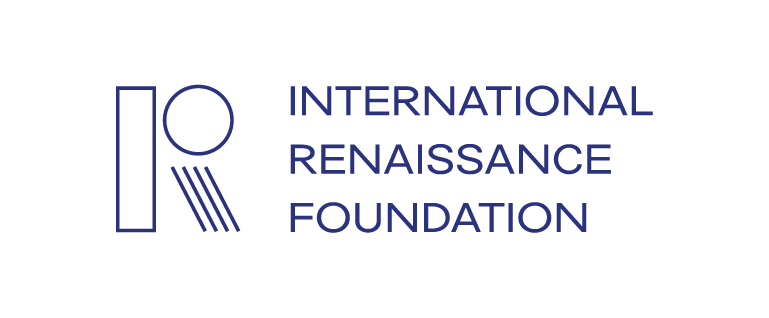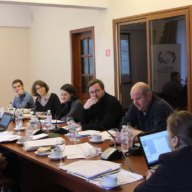Successful execution of the PAIC study tour to Kyiv from 26 November to 1 December 2017

The study tour to Kyiv between 26 November and 1 December was an academic event organized by the Institute for European Politics within the framework of the project “Platform for Analytics and Intercultural Communication” (PAIC). The tour culminated in the participation in this year’s think tank conference in Kyiv.
The objective was to enable young researchers who are affiliated with universities and institutes to meet with representatives of Ukrainian think tanks to gain a comprehensive insight into their work. The meeting further aimed to identify cooperation possibilities between German researchers and Ukrainian think tanks. Therefore, a wide range of topics was covered in the area of domestic and foreign policies, energy, education and the issue of migration, the majority of which dealt with those topics that are essential to the understanding of the current situation of the Ukrainian state and reform processes within the society as a whole.
The annexation of Crimea and the military conflict in Donbas were the most frequent issues which gained particular attention both within Ukraine as well as abroad. Mustafa Dschemiljew, former deputy chairman of the national assembly of Crimean Tatars spoke to the participants of the study trip about the current situation of the Tatars after the annexation in 2014. Further insights into the topic were provided by Vyacheslav Likhachev, coordinator at the Ukrainian NGO Vostok SOS and researcher at the National Minority Rights Monitoring Group, whose organization documents human rights abuses on Crimea and in the East of Ukraine.
The military conflict in Donbass and the academic approaches to conflict solution were discussed by Iryna Bekeshkina from Ilko Kucheriv Democratic Initiatives Foundation and Oleksij Haran who is a professor of politics at Kyiv Mohyla Academy.
Other focal subjects included topics which are in focus of active reform efforts in Ukraine. Svitlana Kononchuk from the think tank Ukrainian Center for Independent Political Research shared her assessment about the upcoming parliamentary elections in 2019 and whether open party lists and transparent financing will have an influence on the expected outcome. Anton Antonenko and Denys Nazarenko from think tank DiXi Group spoke about achievements and challenges in the implementation of the planned energy reforms especially in regard to transparency and regulatory commissions. Envisaged adjustments in the education sector and their consequences were covered by Igor Samokhin and Oleksandra Slobodian from CEDOS, a think tank focusing on education, migration and urban development. Kateryna Kulchytska from Europe without Barriers informed on the process of visa free travel between the European Union and Ukraine under the association agreement and how this may help to support the reform processes.
In the field of foreign policy a focus was set to international relations which were represented in the cooperation between Ukraine and Germany. Serhiy Solodkyy from renowned think tank New Europe Center spoke about the role of Germany in Ukraine before the participants accepted an invitation to the German embassy where Florian Pötter exemplified the manifold German-Ukrainian relations.
The political part of the study trip was rounded off by a session about the importance of infographics for a visual presentation of academic output and effective communication with stakeholders. Roman Kulchynskyy and Pavlo Myronov from texty.org conducted this unit.
On the last day, the participants were given the opportunity to attend this year’s think tank conference in Kyiv which was organized and conducted by the International Renaissance Foundation in cooperation with the Institute for European Politics. Main topics of the first day focused less on thematic contents, instead, it addressed changes and perspectives of the think tank environment in Ukraine and how these organizations could deal with the impacts of digitalization, financing and recruitment difficulties and which challenges are to be expected in the following year.
The study trip took place within the framework of the project “Platform for Analytics and Intercultural Communication” (PAIC) which is conducted by the Institute for European Politics (IEP, Berlin), in cooperation with the International Renaissance Foundation (IRF, Kiev), the der Ilko Kucheriv Democratic Initiatives Foundation (DIF, Kiev) and the think tank initiative „think twice UA“ (Kiev), supported by the Federal Foreign Office of Germany in 2017–2018.









